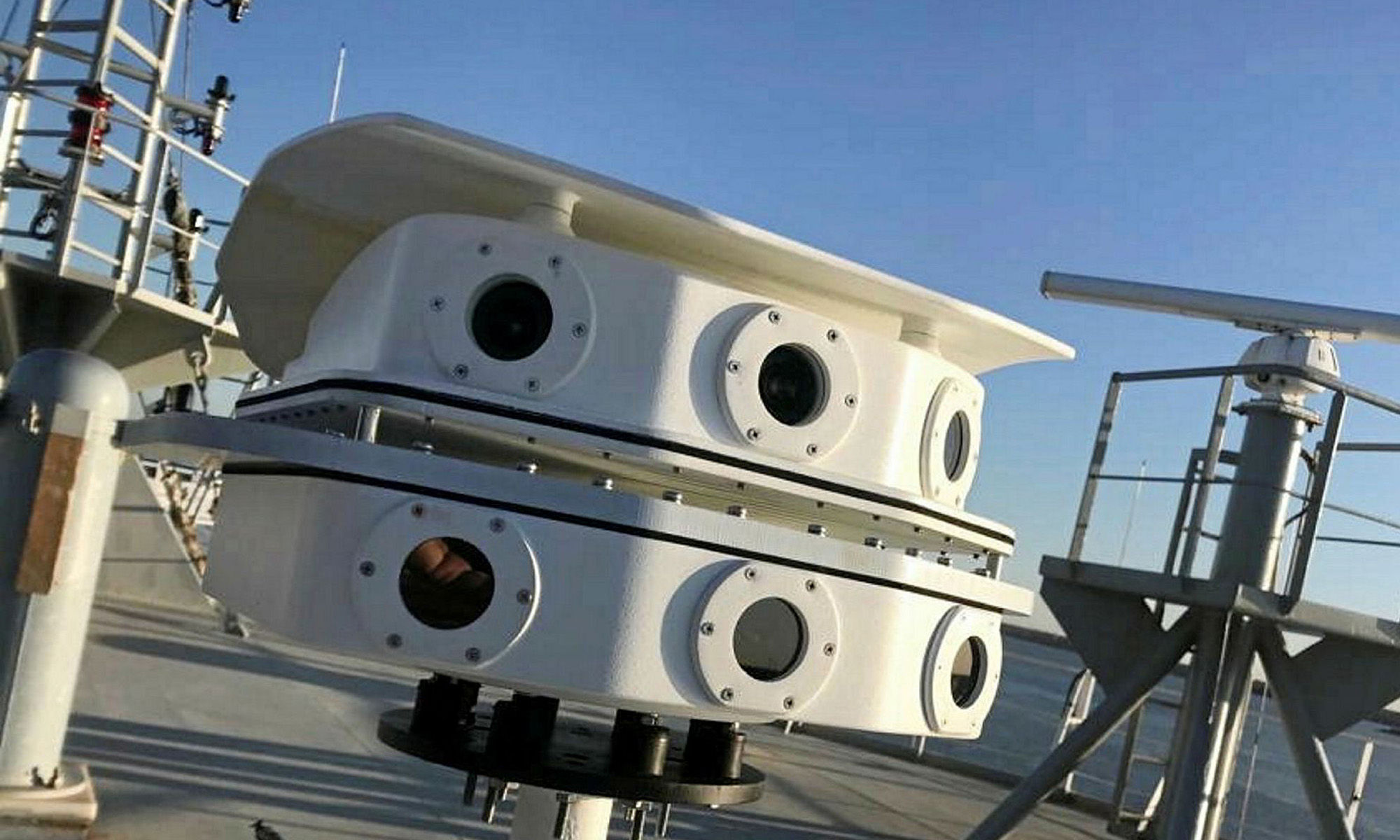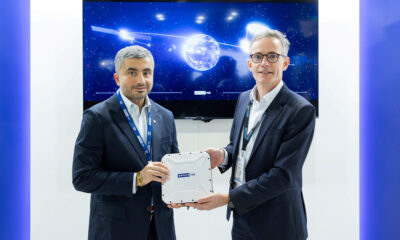News
Orca AI To Save Lives With Its Collision Avoidance System For Ships
Orca AI combines data from sensors with artificial intelligence to provide real-time insights that reflect the changing conditions at sea.

The recent Suez Canal blockage, which lasted for six days after a 400-metre-long (1,300 ft) container ship ended up wedged across the waterway due to the combination of strong winds and human errors, showed the whole world just how easily can major shipping accidents happen and how severe and long-lasting their impact can be. Unfortunately, the Suez Canal blockage was just one of several thousand marine incidents that occur annually. Now, one Tel Aviv-based company has successfully raised €10.8 million in a Series A round to work on its ship navigation and collision avoidance system, Orca AI.
“The maritime industry has come leaps and bounds in recent years, but is still far behind aviation with technological innovations. Ships deal with increasingly congested waterways, severe weather and low-visibility conditions creating difficult navigation experiences with often expensive cargo,” says Orca AI CEO and co-founder Yarden Gross.
Orca AI combines data from sensors with artificial intelligence to provide real-time insights that reflect the changing conditions at sea. The system can be used for individual ships to deliver predictions and alerts on hazards, but it can also supply fleet managers with insights on the risk behavior and patterns of the entire fleet.
Also Read: Dubai-Based Startup Huspy Helps Emiratis Buy Homes Online
“Utilizing onboard navigation sensors and high-resolution cameras with proprietary AI algorithms, the technology is able to provide valuable insight such as alerting the crew on dangerous targets, prioritize risk in real-time and sort out complex navigation situations,” explains Dor Raviv, Co-Founder & CTO of Orca AI.
Other tech companies are also trying to make the shipping industry safer and less prone to costly accidents. For example, the Saudi Arabian Oil Company is using AI technology to monitor its maritime fleet, while Stockholm-based X Shore is exploring an auto-docking solution that could greatly streamline what’s arguably the most dangerous part of getting a massive cargo ship from point A to point B.
News
Alienware Just Announced Six New Gaming Monitors
The new models include three QD-OLED and three budget-friendly QHD options, expanding the company’s lineup for all gamers.

Alienware has just updated its gaming monitor lineup with six new additions, including the highly anticipated Alienware 27 4K QD-OLED Monitor. The latest wave of releases is set to reach more gamers than ever, offering high-end QD-OLED displays alongside more budget-friendly options.
The latest displays clearly show that the company is doubling down on QD-OLED with three new models sporting the technology. A redesigned Alienware 34 Ultra-Wide QD-OLED Monitor is also making a return, further refining what is already a fan-favorite display.
A Unified Design: The AW30 Aesthetic
All six monitors feature Alienware’s new AW30 design language, first introduced at CES. The AW30 aesthetic brings a futuristic, minimalist look that unites the entire lineup under a cohesive visual identity.
Pushing QD-OLED Even Further
The refreshed Alienware 34 Ultra-Wide QD-OLED Monitor (AW3425DW) builds on its predecessor’s success with a 240Hz refresh rate (up from 175Hz) and HDMI 2.1 FRL support. It also gains G-SYNC Compatible certification alongside AMD FreeSync Premium Pro and VESA AdaptiveSync, ensuring ultra-smooth performance. With a WQHD (3440×1440) resolution and an 1800R curve, this display enhances immersion for both gaming and cinematic experiences.
For those who crave speed, the Alienware 27 280Hz QD-OLED Monitor (AW2725D) pairs a high refresh rate with QHD resolution, balancing sharp visuals with ultra-smooth gameplay. Meanwhile, the Alienware 27 4K QD-OLED Monitor (AW2725Q) delivers stunning clarity with an industry-leading pixel density of 166 PPI, making it the sharpest OLED or QD-OLED monitor available.
Also Read: Infinite Reality Acquires Napster In $207 Million Deal
Worried about OLED burn-in? Alienware’s entire QD-OLED lineup comes with a three-year limited warranty covering burn-in concerns, offering peace of mind for gamers investing in these high-end displays.
Bringing QHD To A Wider Audience
Alongside QD-OLED, Alienware is also releasing three new QHD gaming monitors aimed at more price-conscious gamers. The Alienware 34 Gaming Monitor (AW3425DWM), Alienware 32 Gaming Monitor (AW3225DM), and Alienware 27 Gaming Monitor (AW2725DM) provide a range of sizes and formats to suit different preferences:
- The Alienware 34 Gaming Monitor (AW3425DWM): An ultrawide (WQHD) option for a panoramic, immersive experience.
- The Alienware 32 Gaming Monitor (AW3225DM): A standard 16:9 panel for a traditional but expansive desktop setup.
- The Alienware 27 Gaming Monitor (AW2725DM): A 27” display offering the same performance in a more compact form factor.
All three gaming monitors feature a fast 180 Hz refresh rate, a 1ms gray-to-gray response time, and support for NVIDIA G-SYNC, AMD FreeSync, and VESA AdaptiveSync to eliminate screen tearing. Additionally, with 95% DCI-P3 color coverage and VESA DisplayHDR400 certification, these displays deliver vibrant colors and high dynamic range for lifelike visuals.
-

 News2 weeks ago
News2 weeks agoSpace42 & Cobham Satcom Launch New Satellite Broadband Terminal
-

 News3 weeks ago
News3 weeks agoVernewell UK: Forging The Future Of Intelligence, Quantum, And AI
-

 News3 weeks ago
News3 weeks agoYasmina Smart Speakers Now Feature Ramadan-Specific Content
-

 News3 weeks ago
News3 weeks agoPure Electric Expands To UAE, Boosting Micro-Mobility Sector














